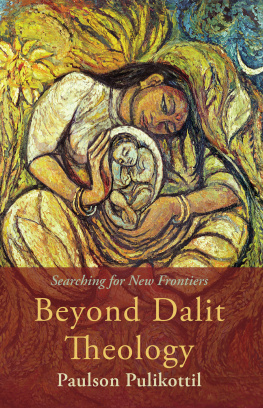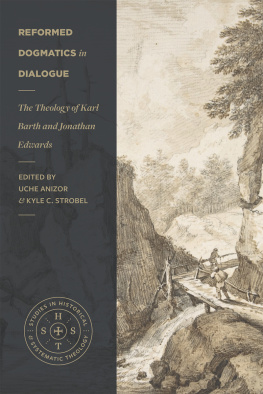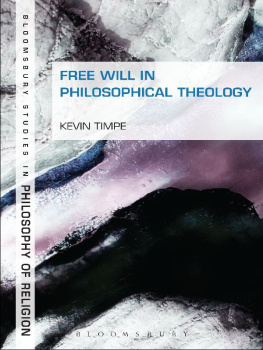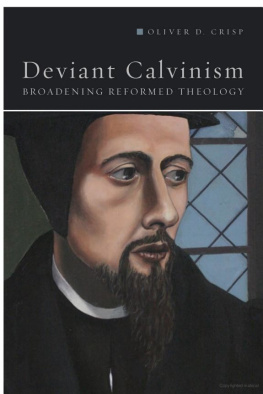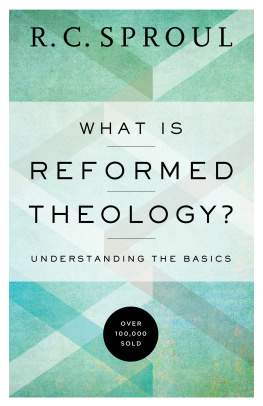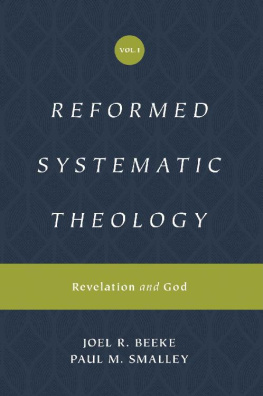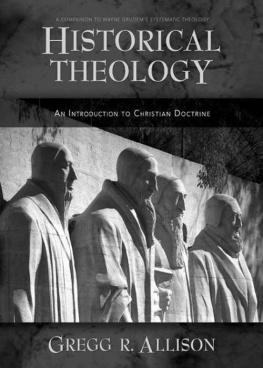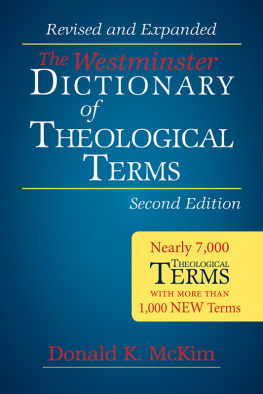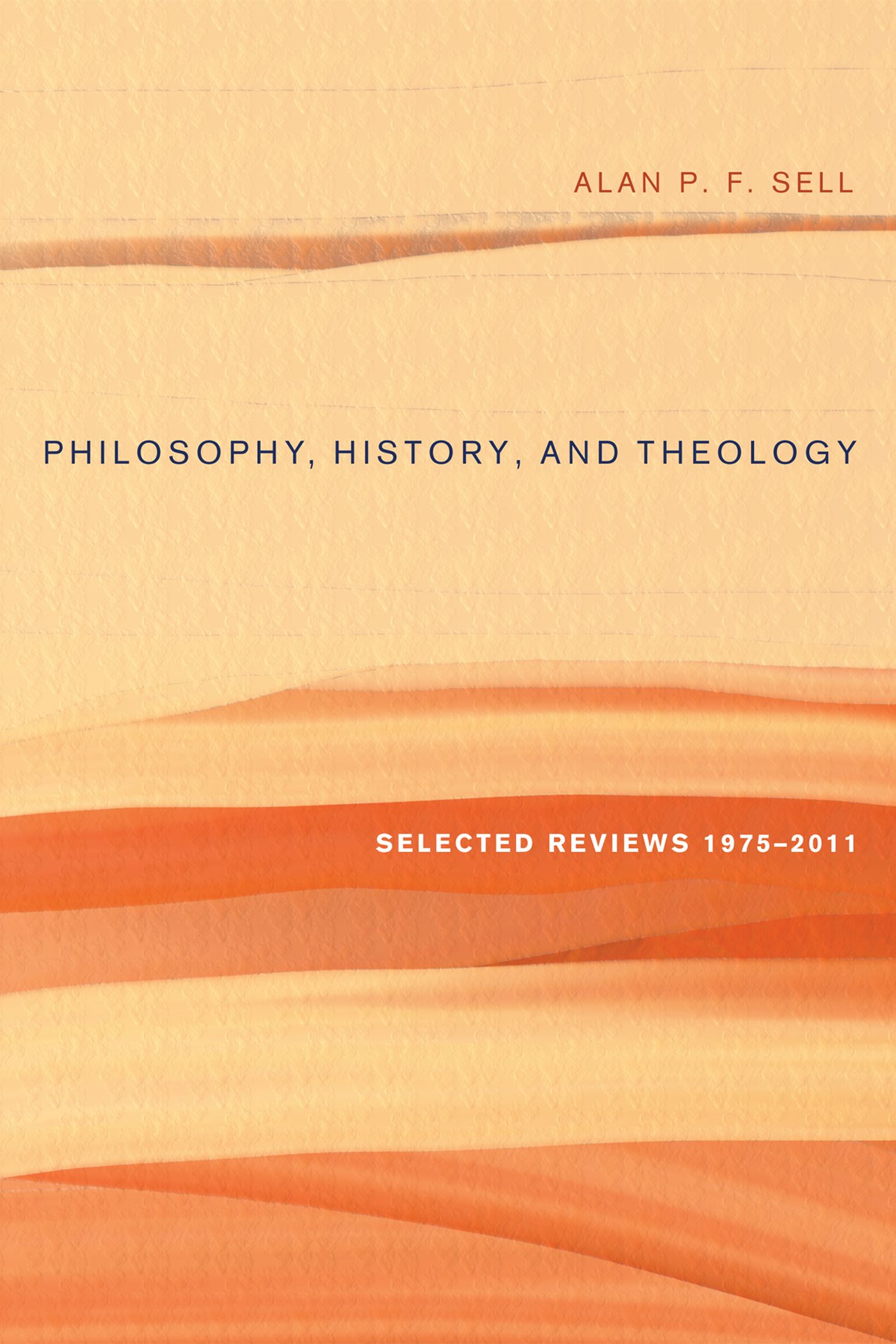Alan P. F. Sell
Copyright 2012 Alan P. F. Sell. All rights reserved. Except for brief quotations in critical publications or reviews, no part of this book may be reproduced in any manner without prior written permission from the publisher. Write: Permissions, Wipf and Stock Publishers, 199 W. 8th Ave., Suite , Eugene, OR 97401.
199 W. 8th Ave., Suite 3
Manufactured in the U.S.A.
To Robert Pope,Custodian of the Dissenting heritage, theological torch-bearer, good friend
It is impossible to have clear reasoning and judicious arguments from a writer who either will not tell you his meaning, or expresses it in such a manner that you cannot understand it.
Preface
S in ce the rationale of this collection of reviews is explained in the Introduction, it is necessary here only to comment upon the arrangement of the material and to render thanks.
At the head of each review will be found bibliographical details of the work in question, though prices of books (many of them now out of date) will not be recorded. At the end of each review the original place of publication will be given. An Index of Authors/Editors of Books Reviewed, and an Index of Sources, precede the General Index. A very small number of editorial amendments have been made to a few of the reviews.
Thanks are rendered to the following editors and publishers for permission to reprint reviews which have appeared under their auspices: Leigh Andersen, Critical Review of Books in Religion ; F. Christopher Anderson, The New Mercersburg Review ; Alan Argent, Congregational History Circle Magazine ; Maria Baghramian, Philosophical Studies (Ireland); Michael Beaney, British Journal for the History of Philosophy ; Sarah Bennison, Epworth Review ; Clyde Binfield, Journal of the United Reformed History Society ; Isabelle Brochu, National Bulletin on Liturgy ; Alastair Cheng, Literary Review of Canada ; Michael Conway, The Irish Theological Quarterly ; Martin Fitzpatrick, Enlightenment and Dissent ; Theodore Gill, Ecumenical Review ; Roland Hall, The Locke Newsletter ; David Ceri Jones, Proceedings of the Wesley Historical Society ; J. Gwynfor Jones, Journal of the Presbyterian Church of Wales Historical Society ; Francis Landy, Studies in Religion ; Arie C. Leder, Calvin Theological Journal ; Patricia Methven, Kings Theological Journal ; Michael Parsons, European Journal of Theology and Evangelical Quarterly ; Susan Parsons, Studies in Christian Ethics ; Ian M. Randall, The Baptist Quarterly ; Edna Rosenthal, The European Legacy ; Alan Ruston, Transactions of the Unitarian Historical Society ; David Sosa, Philosophical Books ; David Steers, Faith and Freedom ; Adrian Thatcher, Modern Believing ; Iain Torrance, Scottish Journal of Theology ; Douwe Visser, Reformed World ; Anne Waites, The Journal of Ecclesiastical History ; Brian Watson, Friends of the Congregational Library Newsletter ; Robert Welsh, Mid-Stream ; Roy Wolper, The Scriblerian .
The following publishers have likewise granted permission to reprint: Sage Publications: The Irish Theological Quarterly ; Taylor and Francis: British Journal for the History of Philosophy ; The European Legacy ; International Journal of Philosophical Studies ; Wiley-Blackwell: Ecumenical Review ; Philosophical Books .
I thank all the authors who have supplied grist to my reflective mill. As on previous occasions it is my pleasurable duty to thank the editor-in-chief at Wipf and Stock, Dr. K. C. Hanson, as well as my editor, Dr. Robin Parry, and all their colleagues, for their continuing support of my authorial efforts and for the care they lavish upon every stage of the publishing process.
Alan P. F. Sell
Milton Keynes, U.K.
Introduction
M y first review was published in 1974; the second, published during the following year, appears in this collection. Over the years I have had the pleasure of reviewing numerous books, and I here present a selection of my findings. I have occasionally met academic colleagues who have regarded reviewing as a chore. To me it has never been so: on the contrary, I am always eager to learn from others, and I enjoy trying to balance out the several responsibilities that bear upon a reviewer. There is, first, the reviewers responsibility to the author. I have always felt it my duty to let readers know what the book in question is about, and to deal as honestly as I can with the contents. It will not do to complain that an author has not written the book that I would have produced if only I had got around to it. Again, it is a dereliction of duty to heap false praise upon a work that is seriously flawedafter all, one has a responsibility to the readers and to oneself. It is even more important to give credit where it is due. One also has a responsibility both to the publisher, who may have invested heavily in the project and, at one remove, to the authors family who may, if many prefaces are to be believed, have suffered neglect during the writing process. Above all, I enjoy entering into conversation with authors on matters of interest to us both. In most of my reviews I strive not only to describe and apportion praise or blame, but also to reflect upon what I have read, in the hope that the discussion may be carried further.
The reviews in this collection (only a handful of which are as short as book notes) are among those of books that I have found to be of particular interest. It will be clear from the plan of the book that the reviews are the contributions of a borderland person who traverses the frontiers of philosophy, history and theology. While I by no means deny that work of high quality may be accomplished by those who pay microscopic attention to very specific fields of knowledge (I recall an eminent Church historian who would never venture an opinion outside of my fifty years), I cannot easily regard our inherited departmental boundaries as sacrosanct. As a philosopher I could not disclaim all interest in the history of the subject, for we do not fully understand the major thinkers unless we know something of the intellectual world which they inhabited. Wearing the hat of a systematic theologian, and taking a firm grounding in biblical studies as read, I could not proceed without recourse to the techniques of linguistic analysis, or knowledge of the heritage of Christian doctrinal thought; and one of my favourite routes into history is to investigate what happens at the ecclesiastical grass roots when doctrines are espoused, modified or repudiated. I could not work satisfactorily with ecumenical partners unless I had accurate acquaintance with the history and polities of the several Christian traditions; and when exploring historical themes I cannot forget that Christians are people who believe things: they are not simply socio-political operatives, still less, statisticsthough they can, of course, be hypocrites.
A practical consequence of what some may regard as my wanton eclecticism is that some of the books reviewed in this collection have been hard to apportion to the three parts: Philosophy, History and Theology. Indeed, in demonstration of the permeability of our inherited departmental boundaries, a number of them could be transferred to other sections without misrepresentation of their contents. With a view to making the work more than a random miscellany of unrelated items, I have selected and ordered the reviews in the hope of ensuring a degree of chronological and/or thematic progression within each part.


